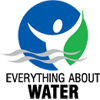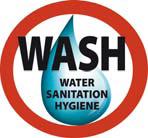Public Infrastructure and Services
Increasing groundwater dependency and declining urban water quality – A comparative analysis of four South Indian cities
Posted on 15 Aug, 2010 07:18 AMThis paper by the Institute of Social and Economic Change (ISEC) examines the extent of groundwater dependency and quality status in four South Indian cities viz., Hubli, Dharwad, Belgaum and Kolar cities. Widespread water shortage problems have resulted in increased dependency on groundwater with tapping the resources to unsustainable levels. In Karnataka, out of 208 urban local bodies that come under Karnataka Urban Water Supply and Drainage Board, 41 depend on groundwater.
Power finance: Financial institutions in India's hydropower sector - A report by SANDRP, Urgewald and IRN
Posted on 12 Aug, 2010 05:01 PMThis report published by SANDRP, Urgewald and International Rivers Network (IRN) provides a brief background on India's power and financial sectors and illustrates the issues at stake by giving examples of two important power projects in India, the Dabhol project and the Maheshwar project.
The next part of the report describes the role that the domestic and international financial institutions have played and continue to play and the controversies that have been associated with the functioning of these institutions in the implementation of the hydropower projects in India.
The report emphasises the importance of the role of NGOs and civil society movements in making these institutions accountable to the common people whose lives are affected by the projects/ interventions.
Mountains of concrete: Dam building in the Himalayas - A report by International Rivers Network
Posted on 11 Aug, 2010 07:38 PMThis document by International Rivers Network provides a background for the recent plans initiated by India, Nepal, Pakistan and Bhutan to build several hundred dams on the Himalayan mountains, which store vast amounts of water and with their high slopes and fast moving rivers, present a huge potential for generating hydropower.
India, Nepal, Pakistan and Bhutan have been facing the increasing challenges of meeting their rising elecricity and energy needs and hydropower dams in the Himalayas are being proposed as solutions to meet a considerable part of these requirements.
The document examines the various arguments that have been put forward against the building of the dams as against the proposed advantages that the dams are claimed to have for these four countries, which share common geographical, topographical and eco-climatic features but have starkly different political and economic contexts.
Water Initiatives Orissa dated on 5th August 2010
Posted on 11 Aug, 2010 12:18 PMWIO Urges the Government of Orissa to come out with a While Paper on state and availability status of water resources in the state. The demand comes in the wake of the government's consistent claim that the state is water surplus even though water scarcity hits us all every day.
Sambalpur, 5th August 2010 - As the industrial overdrive of Orissa continues with signing of MoU after MoU with water guzzling industries, there is no clarity on the exact water available in the state. The government has been propagating that Orissa is a water surplus state. However, statistics used by the various reports of the government are dated to 2001, from when the real industrialization boom has taken off in the state. It is time that the government comes out with a transparent position paper on the exact water availability in the state or else water conflicts will aggravate.
Economics of River Flows - A book by Dr.Bharat Jhunjhunwala
Posted on 09 Aug, 2010 06:06 PMThis book is essential reading for economists, power sector officials, power generation companies and environmentalists alike.
Dr.Bharat Jhunjhumwala holds a BSc degree in physics, chemistry and mathematics. He earned his PhD in food and Resource Economics from University of Florida at a tender age of 23 years. He joined Indian institute of management, Bangalore as Assistant professor immediately thereafter. He lived in a slum for two years to understand poverty and organized the Trade Union at IIM during the Emergency. He resigned from the IIM and became a consultant to donor agencies like Swiss Development Cooperation, Oxfam, Care, Overseas Development Institute and others mainly on rural development and watershed issues. He writes a column on economic issues for about 50 newspapers in india. He lives on the banks of River Alaknanda in uttarakhand on the feet of Lord Badri Vishal.
Floods, drinking water contamination, mining and waterbodies, water bills, water conflicts - News roundup (1-7 August 2010)
Posted on 07 Aug, 2010 04:51 PMFloods: lessons to be learnt from the massive flooding in Surat city
A report by IIM criticises the way in which dams are managed in the country and calls for the need to apply Management Science / Operations Research techniques and information technology to improve dam management and prevention of floods
Invitation for case study submission in water magazine
Posted on 06 Aug, 2010 11:26 AM
Our publication is coming up with the annual "Case Study Special Issue” in Sept. 2010. Its a collector’s issue, where we are covering leading industries across the globe.
UN affirms the right to safe and clean drinking water
Posted on 02 Aug, 2010 02:56 PMA remarkable piece of water history should have been headline news everywhere this week.
Deaths due to water pollution
Posted on 02 Aug, 2010 02:38 PMDeaths due to water pollution occur mainly as a consequence of drinking of contaminated water. The common diseases caused by consumption of contaminated water are Cholera, Viral Hepatitis, Enteric Fever (Typhoid) and Acute Diarrhoeal Diseases (ADD).
The number of deaths reported State-wise on account of Cholera, Viral Hepatitis, Enteric Fever (Typhoid) and Acute Diarrhoeal Diseases (ADD) for the years 2007, 2008 and 2009 are given in Annexure – I-III.
India WASH forum e-newsletter - Update 13 July 2010
Posted on 02 Aug, 2010 11:56 AMWe see this newsletter as a platform for independent credible voice in the water and sanitation sector. Our emphasis is on bringing together critical news and information with analysis. In this issue we share news and analysis on topical issues and developments.
The Department of Drinking Water and Sanitation(DDWS) has simultaneously invited inputs to Discussion Papers on Drinking Water and Sanitation, circulated on Solution Exchange. Inputs given by India WASH Forum, on this, is enclosed in this Update. We have pointed out the missing elements of sanitation improvement strategy that include, criticality of providing water as an inseparable component to household sanitation, the tendency to see behavior change as a lifestyle issue and not linked to the hardware components, peoples livelihoods and living conditions. Suggestions for what needs to be done to strengthen the implementation mechanism of the flagship sanitation programme(TSC) and partnerships.






